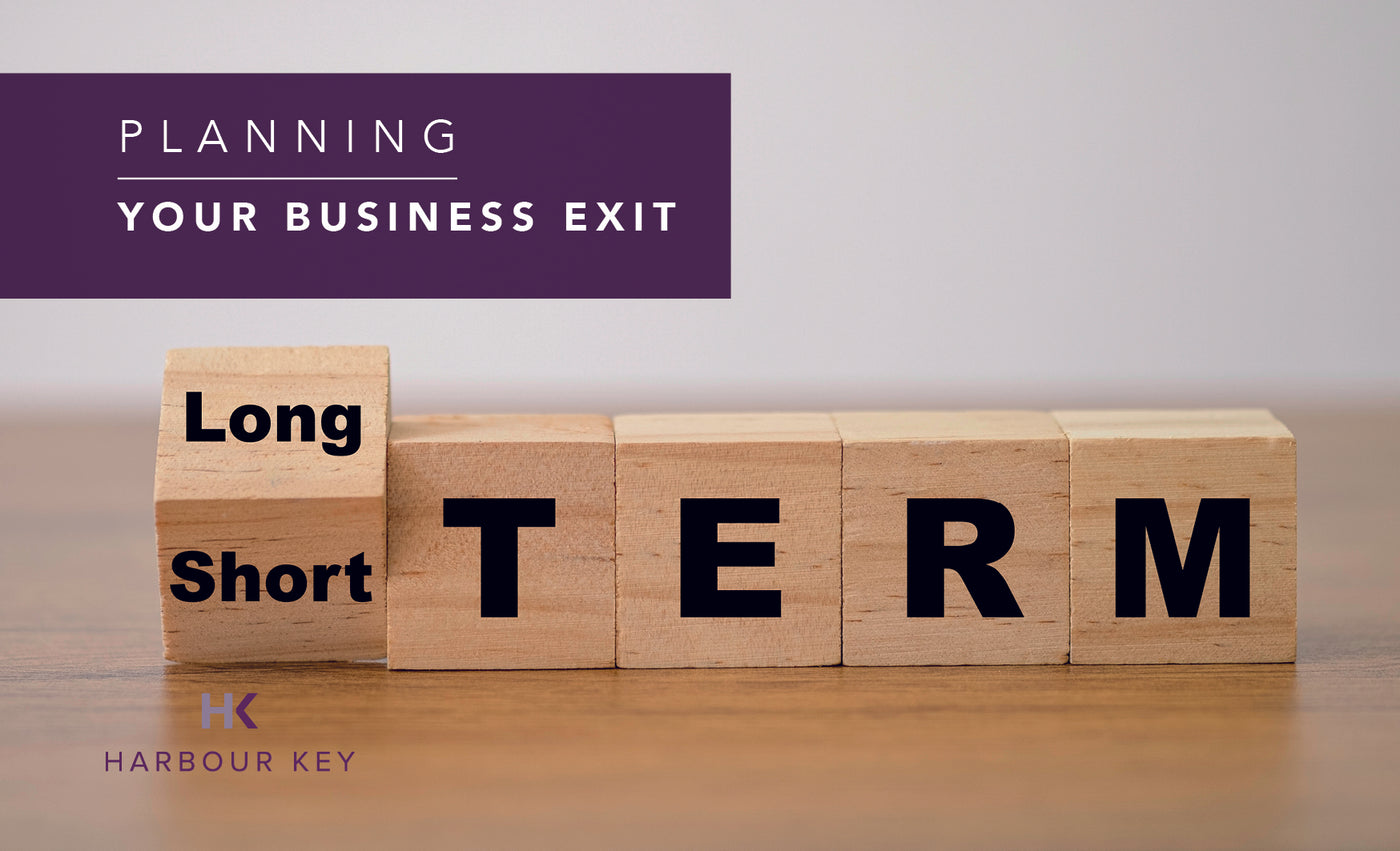
We regularly engage with numerous business owners, and a recurring observation is that when we enquire about a fundamental aspect of their business, such as their long-term vision or retirement plans, many find themselves without a concrete response. Our intention in posing this question is not to receive an immediate answer, but rather to serve as a catalyst for them to begin contemplating this critical aspect of their business. This initial query is designed to ignite a thought process that can ultimately lead to the development and execution of a well-thought-out plan.
It is concerning that a significant portion of businesses are neglecting the vital task of formulating an exit strategy. In doing so, they inadvertently expose themselves to avoidable risks and uncertainties in the future.
There are three core options for a business exit:
- Succession to an employee or family member;
- Sale to another provider; or
- Business closure through a member’s voluntary liquidation.
Both succession and sale opportunities present business owners with the prospect of reaping the financial rewards of their dedicated efforts in building a business. Additionally, they offer a smooth transition and peace of mind for customers. This stands in stark contrast to the option of closing the business through liquidation, which not only squanders the time and expertise invested but also tarnishes the hard-earned reputation painstakingly constructed over time.
In the UK, 25% of business owners are 35 to 44, 31% are in the 45 to 54 bracket, and 25% are 55 to 64. A further 7% are owned by people over the age of 65. This means that 32% of business owners are already at, or approaching retirement age within the decade, representing potentially thousands of businesses that have the potential to be sold.
A stark statistic is that of the businesses available for sale, just 30% successfully sell each year, which can be for many reasons, but it does provide an indicator of the saleable quality of the businesses, rather than the number of buyers in the market.
For a business to be marketable, it must possess the capability to function independently of its owner or founder, a feat that remains unattainable in most instances. The phrase often echoed by team HK, "A good business owner is a lazy business owner," underscores this sentiment when interacting with clients. The crux of the matter lies in the fact that many businesses establish a strong rapport between customers and their original point of contact. Consequently, a substantial portion of these businesses encounter difficulties when attempting to transfer customer relationships, thereby leaving untapped potential at the moment of sale.
Consequently, potential buyers or successors grapple with assessing the true worth of the acquisition, haunted by the apprehension that customers might defect after the transition is finalised. Consequently, they often shy away from taking the risk, leading to a situation where a substantial majority, approximately 70% each year, of business owners are compelled to close their enterprises and liquidate their assets, without ever securing a buyer. This not only has a profound impact on the business owner or founder but also places an unwelcome burden on the customers, who are forced to seek out new suppliers or service providers.
Forward planning is the single biggest factor to achieve a successful sale. The consensus from business surveys is that only around 10% of businesses have a formalised exit strategy that is ready to execute.
Of the remaining 90%, 30% have a semblance of a plan, but it is not formalised, and the remaining 60% have no strategy at all. While the strategy itself is valuable in supporting an unexpected sale through circumstance for example, most of the value comes from the steps that businesses take in preparing for a sale.
Planning actions should include:
- Planning and documenting your business practices: by being deliberate in your processes, striving for efficiency, and documenting your practices and processes, you make it easier for a potential buyer to visualise what they are buying. The buyer has the comfort that the business can run seamlessly during the takeover, which makes it easier to perceive value. It can also help ensure continuity of care for customers, which is pivotal in ensuring customer retention during the inevitable turbulence from a sale. This exercise also enables you to review your business and practices, to see areas of weakness, and where improvement is required.
- Adopting best practice: there are plenty of businesses that lack innovation and do what they have always done. A buyer or successor will expect any business to be adopting best practice and the latest technological advances to help demonstrate a business that is relevant and progressive. If you plan to run your business forever then you can do whatever you like, but the reality is you will exit at some point, and that means making your business attractive and a credible investment.
- Maximising the value: what actions/steps can you take to increase the value of your business. Most businesses are valued and sold on either a turnover multiplied by a multiple, or profit multiplied by a multiple, so look to improve these numbers, improve efficiencies etc. to add value. The multiple applied is generally dictated by the sector in which the business operates and recent similar transactions, but the more depth to the business, the stronger its process, the team etc, the higher the multiple will be.
- Good Managers/Employees – Depending on the size of the business, having strong well motivated, manager(s) around you, running the business, being able to “step into your shoes” is important. It will not only help with the buyer understanding that the business can run without you, but these managers may also become your exit route.
While we all hope that exiting from your business will be in your control, there are plenty of reasons that it will not be. That is why planning and having contingencies is essential, and it can be helpful to assume that you need to exit in the imminent future. It is very common for a business to have an unsolicited approach, and not being ready for a sale process which makes the task difficult and may result in loss of value or at worst the buyer walking away.
Thinking about the type of buyer you need can help you to position the business for future sale, and it will also help to determine whether succession to an existing employee or family member is a viable option. Keeping an eye on the saleable value of your business can also support your future, helping you to understand and realise the financial prospects for your retirement.
If you find yourself in need of guidance or assistance with a business sale, please don't hesitate to reach out to us HERE.



